Lei Xu has written a piece on the timely topic of apprenticeships:
Motivation
Apprenticeship is high on the political agenda and the government has set a target of 3 million apprenticeship starts by 2020.[1] Apprenticeships were intended to train young workers with the right set of skills and match them with suitable employers. However, new starts were much lower than expected partly because of the apprenticeship levy and partly because of Covid.[2] Since the introduction of the levy fund in 2017, much of the fund has gone unused , suggesting some employers are not well prepared to provide apprenticeships.[3] Prior to the levy, many apprentices were converted from existing employees in firms. This went against the original objective of apprenticeships which was to train young unskilled workers. In this context, this analysis aims to understand the determinants of employing apprentices from an economic perspective. Information is collected primarily from semi-structured interviews with training-related managers and providers, using a detailed interview schedule.
The merit of apprenticeships has been extensively discussed in qualitative research, such as steeping in company values, and reducing labour turnover. In a survey conducted by Mieschbuehler et al (2015), 51% of employers responded that they had difficulty recruiting the skills they needed.[4] Based on the interviews, it is commonly accepted among providers that apprenticeships are a better way of attracting and screening workers to fit with employers and embed them in a firm’s culture.
The cost of employing and training apprenticeships has seen as one of the main obstacles to boost the number of apprenticeships. Although generous subsidies could increase the supply of apprenticeships, the cost-effectiveness of funding would decrease. Our interviews also showed that some firms, especially larger firms, are not sensitive to the direct costs, such as wages and benefits, whilst smaller companies are more cost sensitive. In general, they argue that the cost might not be the priority because the wage of an apprentice is not expensive and some providers have also argued that the wage is too low to attract good candidates.
This analysis highlights the importance of managerial practices on the decision of taking on apprentices. Apprenticeships are operated by firms and hence need to align with firms’ business plans and the decision of taking on apprentices might be complex due to the complex structure in an organisation. In addition, call center recruiting Utah and training apprentices is a complex activity, involving significant inputs of senior members, especially the team leaders who provide personal guidance for apprentices. A hypothesis is that managers’ ability and motivation is vital in employing apprentices and the success of apprenticeships. Apprenticeships are unlikely to be successful if the managers are not in place to arrange suitable work for apprentices. A successful scheme encouraging employers to recruit apprentices depends on thoughtful consultation with employers.
This analysis explains the observations from the interviews that affect employers recruiting apprentices.
Observations from the interviews:
First of all, we observed that lots of apprentices are recruited by apprenticeship providers rather than employers via publishing job adverts on the government’s website, which is strange since apprentices are be employed by employers rather than the providers. Some hidden costs might be associated with employing apprentices. The responses suggest that providers have largely engaged in recruiting and screening apprentices as an additional service of the business. Some providers believe that the additional service provided for employers is value-added, additional to the training. From this perspective, they are providing as much value as they could to retain their clients. The providers will help employers to recruit, screen, and select the most suitable candidates and support the managers and apprentices throughout the training until they complete the training and become independent workers. The providers have argued that they have spent time on talking about procedures and guidance with employers. The evidence suggests that employing apprentices may put both pecuniary and non-pecuniary burdens on employers. The employers are specialised in their own businesses rather than recruiting and training apprentices, especially small firms which normally don’t have the capacity to deal with extra administrative duties. Some employers may have concerns about retaining apprentices after the training. In addition, due to limited managerial resources, the quality of apprenticeship is hard to maintain. The responses suggest that the retention rate is key for the firms hiring apprentices.
The decision of taking on apprenticeships might be complex and often involves different parties, in the same way as every business decision made. The majority of interviewers argue that line managers are vital to the success of apprenticeships. Not all line managers have committed to the idea of training apprentices, resulting in undesirable training outcomes. Since the decision of taking on apprentices might be a collective decision or may come from more senior managers, line managers may not be motivated to take on apprentices. However, line managers need to provide necessary guidance and distribute work to apprentices and are required to provide encouragement at a personal level sometimes. Contrary to experienced colleagues, training apprentices may substantially increase the workload as line managers need to provide guidance to the apprentices and communicate with providers and assessors.
At present, most vacancies are advertised on the website and the virtual platform may result in low efficiency of matching, especially when managers have a lack of information on job seekers.[5] Employers often screen workers based on their historical performance on relevant tasks. In the absence of prior experience, it is hard to ascertain candidates’ genuine productivity. Good matches between employers and candidates also requires substantial knowledge of both the firms and young workers. Outsourcing agencies have emerged to help inexperienced candidates with high productivity to match with employers. Stanton and Thomas (2016) argue that workers affiliated with an outsourcing agency have a higher probability of finding a job and receiving a higher starting wage as well.[6]
There is divided opinion on whether it is hard to convince employers. It takes more effort to persuade line managers to take on apprentices when they would rather work with existing employees, suggesting the cost of running apprenticeships is associated with social cognition. Apprentices concentrate on several sectors where there is a long tradition of employing apprentices. Some providers argue that a company whose CEO was formerly an apprentice is more likely to accept apprentices . Most of the providers argue they will explain the procedures and the benefits of apprenticeships to employers and discuss with employers how to develop a plan for apprenticeships. On the other hand, some providers argue that the information is not enough for candidates to understand the nature of the job and the required skills, especially when the employer’s job description is vague. Some firms tend to make the job adverts quite generic as they may want more potential candidates to apply. But it may create issues for apprentices who usually are new to the job, potentially resulting in a matching problem.
Suggestions and implications
The government’s aim to increase apprenticeships might not be successful without comprehensive consulting with firms. Firms may need to adjust their business models to adapt to apprentices. Successful apprenticeships require collective efforts, especially the support from line managers.
The costs of running apprenticeships are often regarded as one of the most important factors affecting the decision of taking on apprentices. However, this analysis notices that some large firms are not sensitive to the direct costs, contrary to firms with smaller scale. In general, they argue that the cost might not be the most important reason for not employing apprentices and some providers argue that the wage is too low to attract good candidates. Moreover, one of the social costs of running apprenticeships is due to the low social recognition. This explains why the most successful firms operating apprenticeships often have senior managers who understand and share the value of apprenticeships.
Some managers might be reluctant to take on apprentices as there is no incentive. Given that managers are one of the fundamental factors of a successful apprenticeship, the government should not only provide financial aids to support employers to train more apprentices but also introduce the genuine benefits of apprenticeships, especially to managers, by disseminating research findings and communicating with them openly. The objective is to make employers and managers fully understand how to operate apprenticeships and what benefits apprentices could bring to the team. Firms should develop a suitable plan to allow apprentices to grow and keep the apprentices busy, investing time and effort in apprentices and help apprentices to make progress throughout their career.
In addition, the research also has some interesting observations. Generally, no issue on the flexibility of adjusting programs has been raised. But it is worth noting that some firms may have special needs as different businesses tend to have different models. Both digital skills and higher levels of apprenticeship have attracted more attention. Given the small number of interviews carried out for this report, it is worth noting that the discussions are indicative rather than definitive for all employers.
[1] House of Commons, Briefing paper CBP 03052.
[2] From April 2017, all UK employers of pay bill over £3 million need to pay the levy.
[3] The Open University. 2018. The apprenticeship levy: one year on.
[4] Mieschbuehler, R., Hooley, T. and Neary, S., 2015. Employers’ experience of Higher Apprenticeships: benefits and barriers.
[5] https://www.gov.uk/apply-apprenticeship
[6] Stanton, C.T. and Thomas, C., 2016. Landing the first job: The value of intermediaries in online hiring. The Review of Economic Studies, 83(2), pp.810-854.
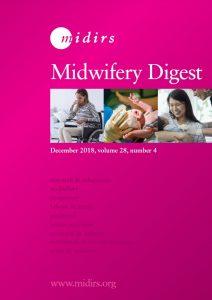
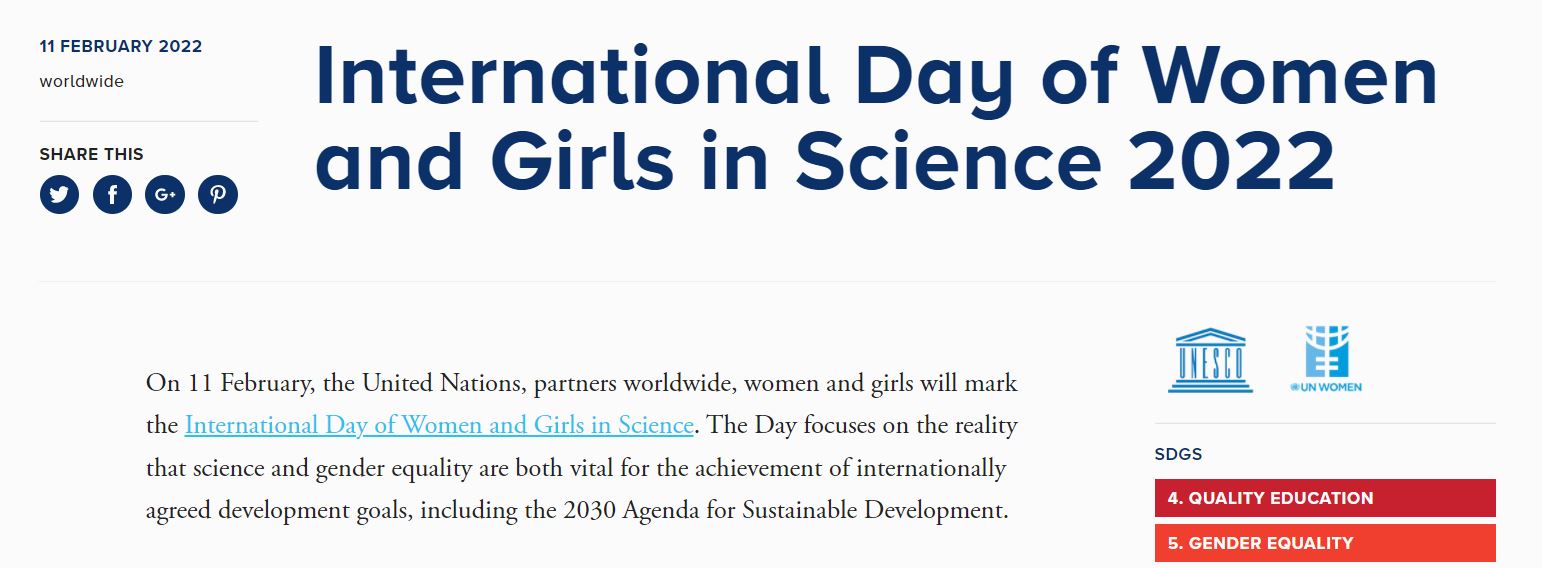
 The Science, Health, and Data Communications Research Centre invites you to our Winter-Spring 2022 research series. These talks are open to the public, and encompass topics on representations of bodies in the media, managing your health data, immersive media, and community responses to suicide.
The Science, Health, and Data Communications Research Centre invites you to our Winter-Spring 2022 research series. These talks are open to the public, and encompass topics on representations of bodies in the media, managing your health data, immersive media, and community responses to suicide.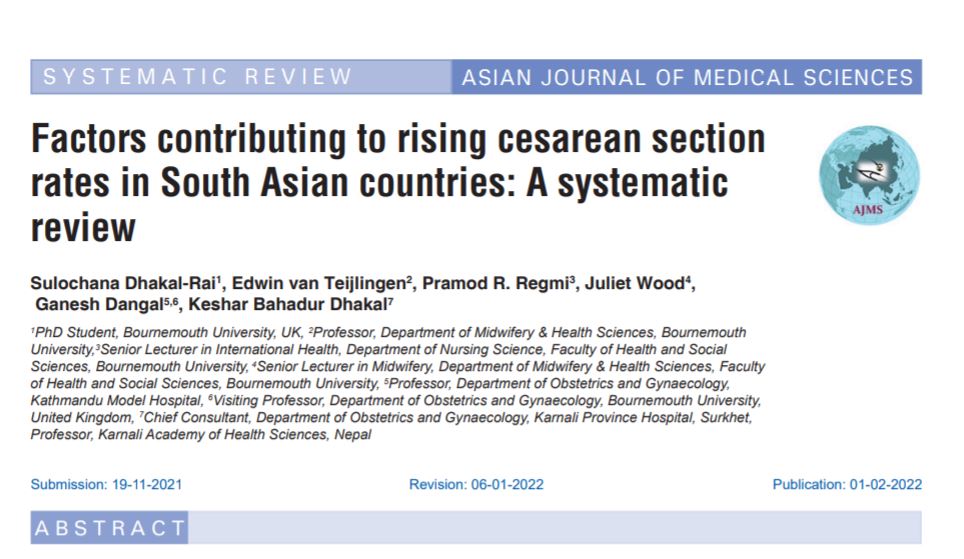 Congratulations to Bournemouth University’s PhD student Sulochana Dhakal-Rai on the publication today of the latest paper from her research thesis. This latest paper ‘
Congratulations to Bournemouth University’s PhD student Sulochana Dhakal-Rai on the publication today of the latest paper from her research thesis. This latest paper ‘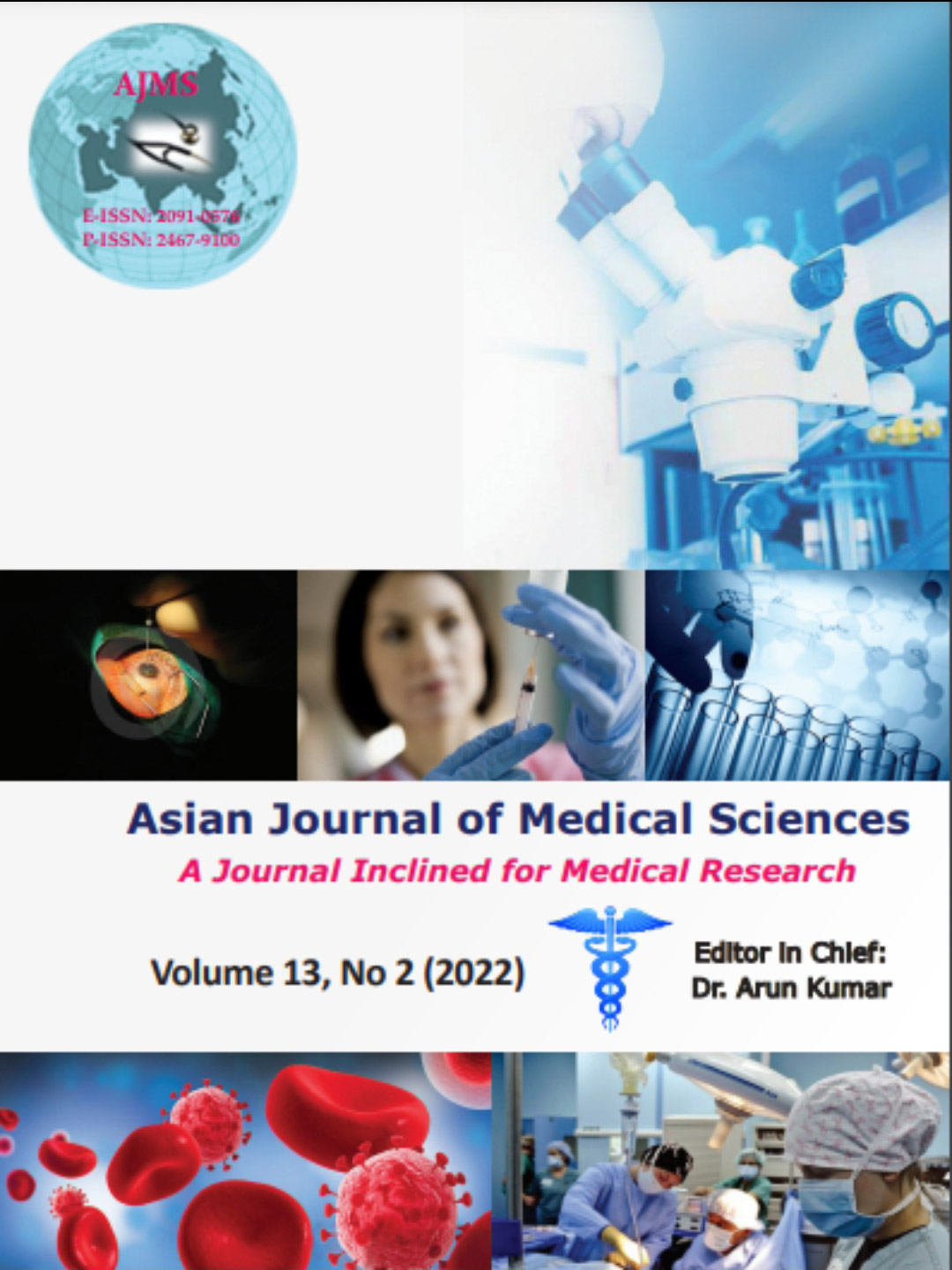 The paper is part of her PhD study of the rising CS rate in Nepal. This systematic review is co-authored with her BU PhD supervisors, Dr. Juliet Wood, Dr. Pramod Regmi and Prof. Edwin van Teijlingen as well as her Nepal-based supervisors Dr. Ganesh Dangel (FHSS Visiting Faculty) and Dr. Keshar Bahadur Dhakal. This is the sixth paper from Sulochana’s interesting and highly topical PhD thesis. The previous five were published in 2018, 2019 and 2021 [2-6].
The paper is part of her PhD study of the rising CS rate in Nepal. This systematic review is co-authored with her BU PhD supervisors, Dr. Juliet Wood, Dr. Pramod Regmi and Prof. Edwin van Teijlingen as well as her Nepal-based supervisors Dr. Ganesh Dangel (FHSS Visiting Faculty) and Dr. Keshar Bahadur Dhakal. This is the sixth paper from Sulochana’s interesting and highly topical PhD thesis. The previous five were published in 2018, 2019 and 2021 [2-6].
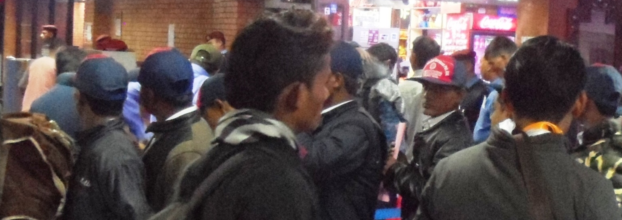

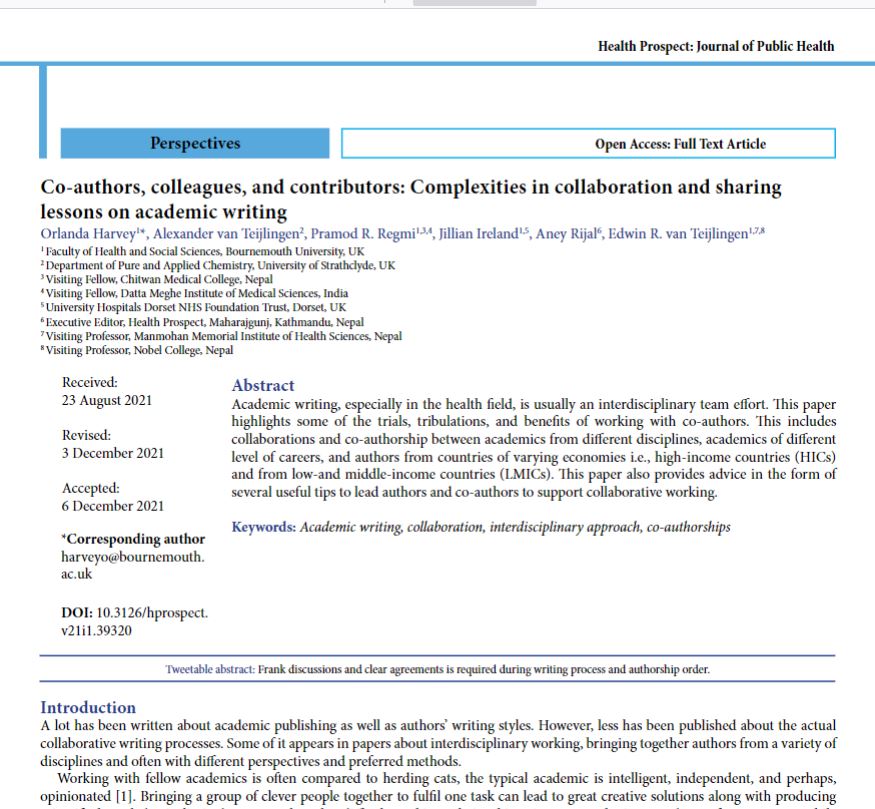
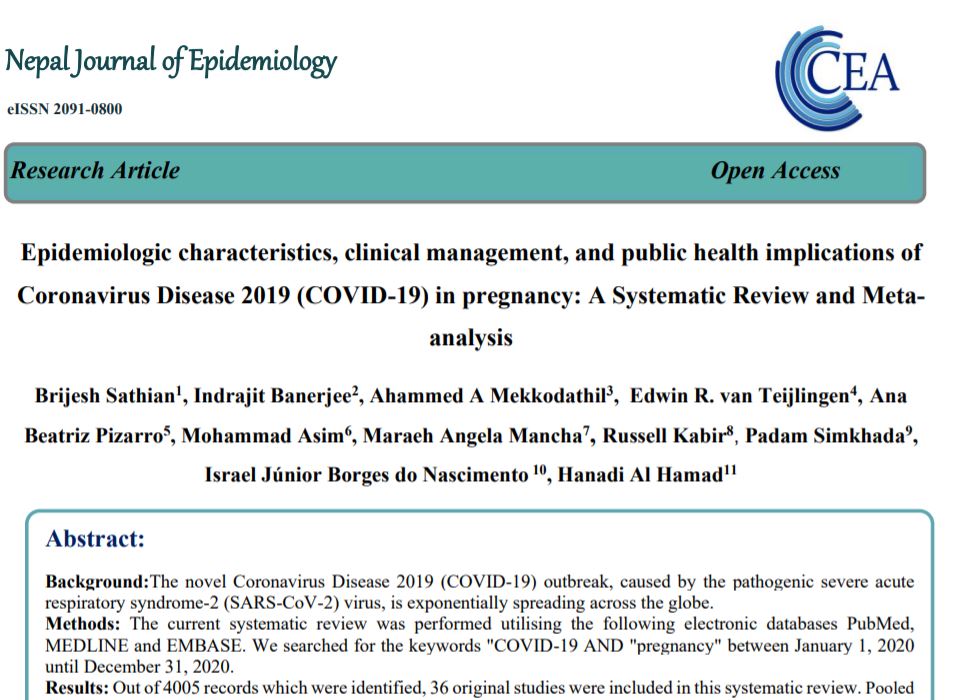 This review covered the published literature on the epidemiology, clinical management and public health prevention aspects of pregnancy and childbirth and coronavirus (COVID-19) up until December 2020. We worked hard and fast to submit the paper as soon as possible after the end of 2020 to be able to publish up-to-date findings. We managed this and submitted the paper on March 5th, the peer-review took some months and so did the making of the revisions. As a result we resubmitted the manuscript of 29 September and we got the acceptance email within a week. We made it into the next issue of the Nepal Journal of Epidemiology which published exactly one year after the data collection period had ended for our systematic review.
This review covered the published literature on the epidemiology, clinical management and public health prevention aspects of pregnancy and childbirth and coronavirus (COVID-19) up until December 2020. We worked hard and fast to submit the paper as soon as possible after the end of 2020 to be able to publish up-to-date findings. We managed this and submitted the paper on March 5th, the peer-review took some months and so did the making of the revisions. As a result we resubmitted the manuscript of 29 September and we got the acceptance email within a week. We made it into the next issue of the Nepal Journal of Epidemiology which published exactly one year after the data collection period had ended for our systematic review.
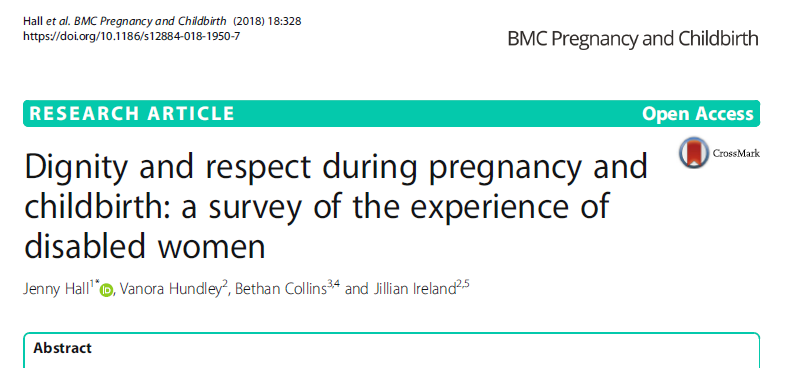
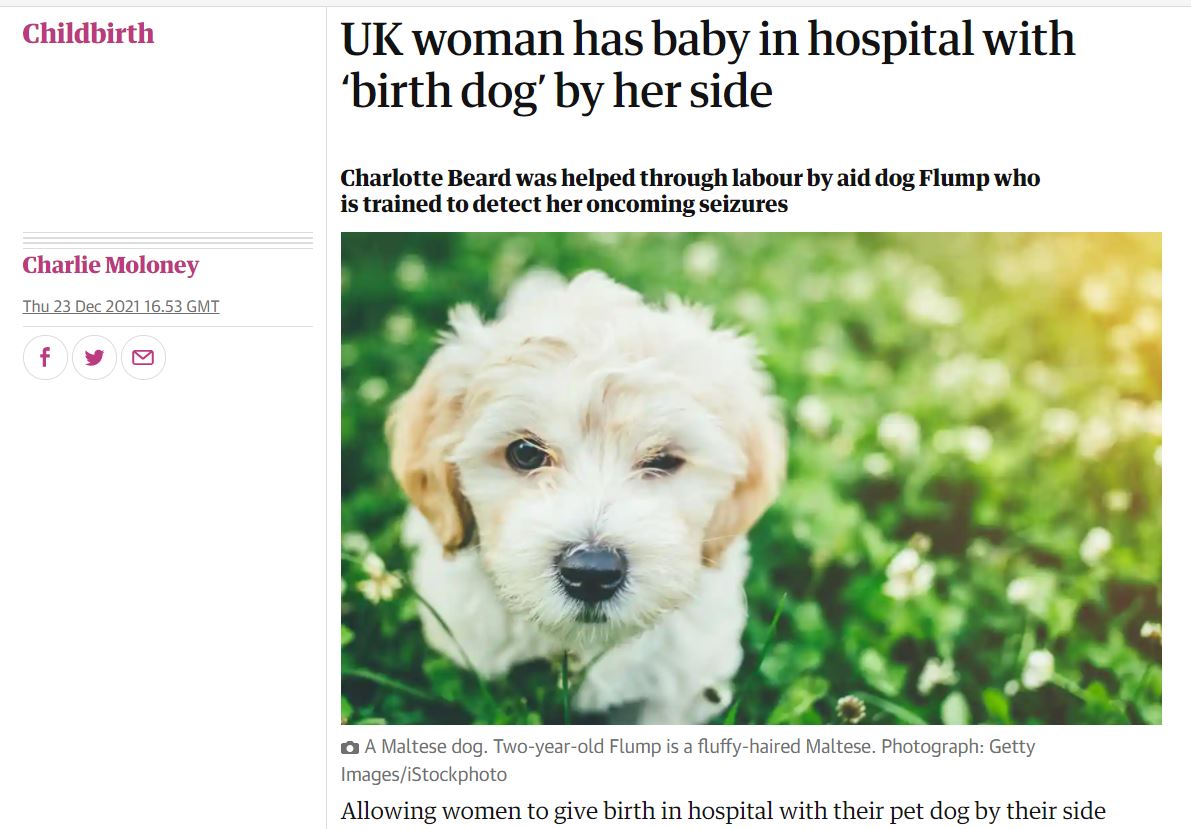
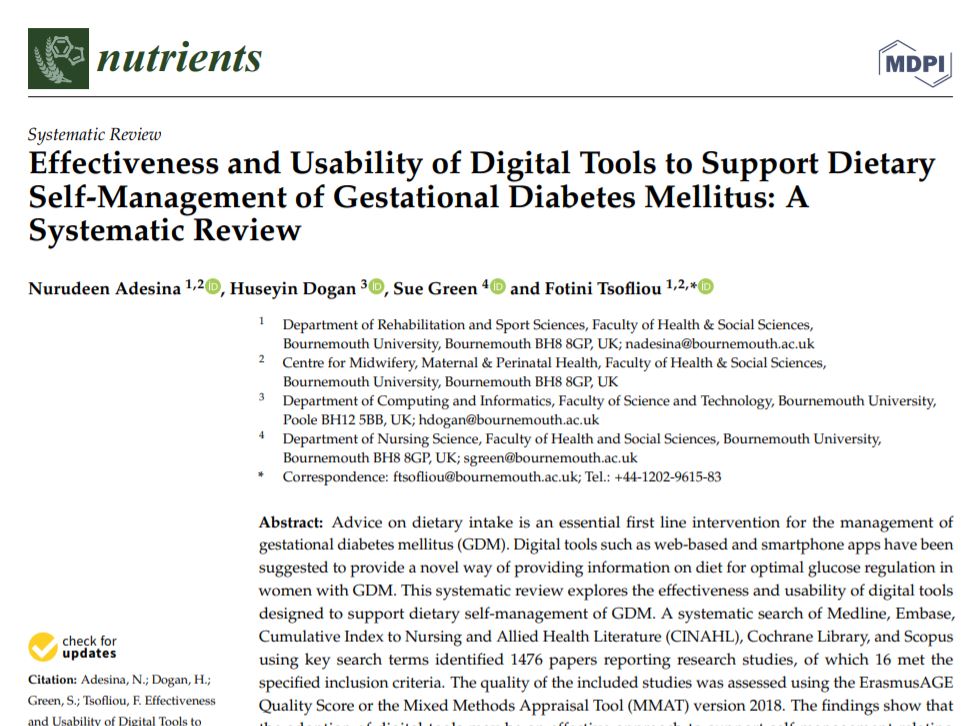

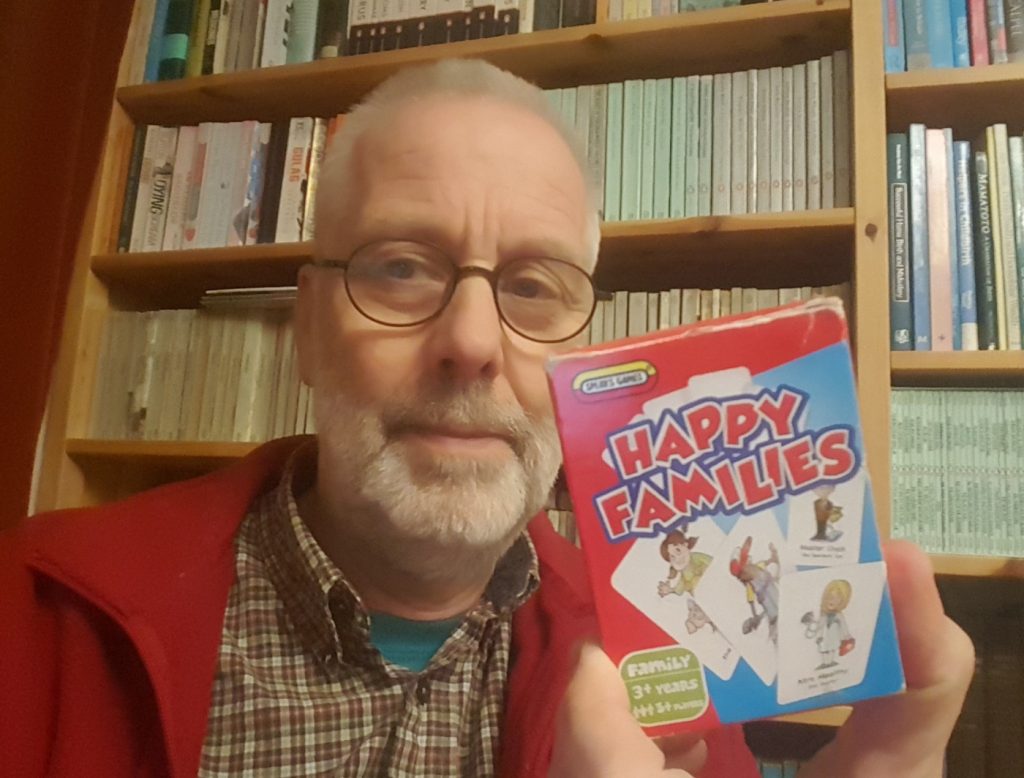
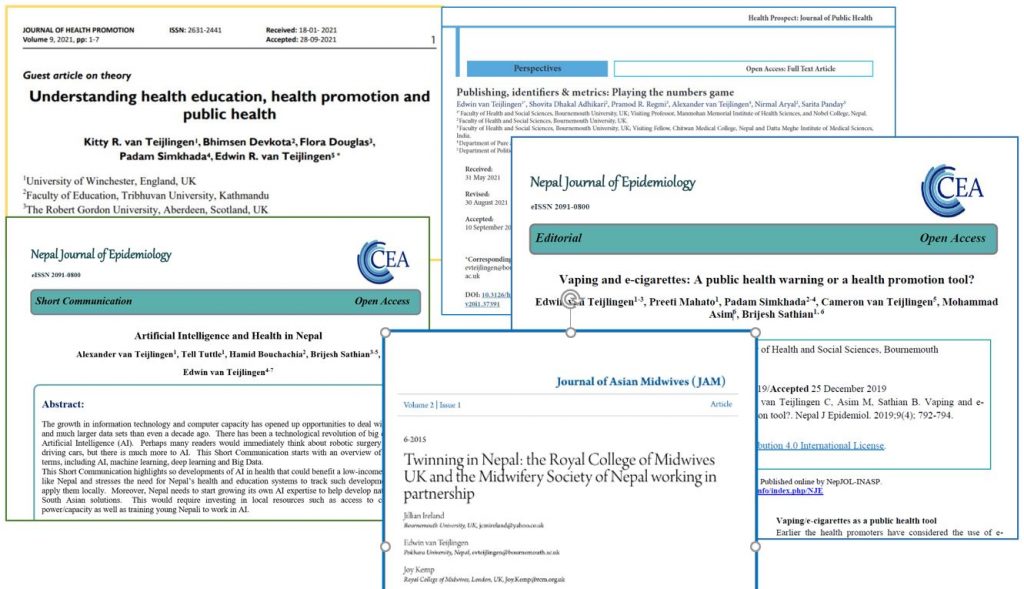

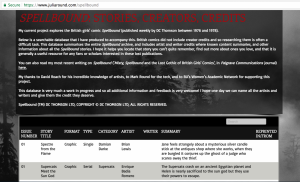














 ESRC Festival of Social Science 2024 Open Call – Deadline for Applications Thursday 16 May
ESRC Festival of Social Science 2024 Open Call – Deadline for Applications Thursday 16 May We can help promote your public engagement event or activity
We can help promote your public engagement event or activity New Seed Fund for Public Engagement with Research: Last Six Funding Opportunities Available
New Seed Fund for Public Engagement with Research: Last Six Funding Opportunities Available Congratulation on new interdisciplinary publication
Congratulation on new interdisciplinary publication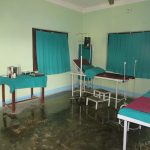 BU professor speaking at Aberdeen Centre for Women’s Health Research (ACWHR)
BU professor speaking at Aberdeen Centre for Women’s Health Research (ACWHR) New seed fund for public engagement with research: open for applications
New seed fund for public engagement with research: open for applications Horizon Europe News – December 2023
Horizon Europe News – December 2023